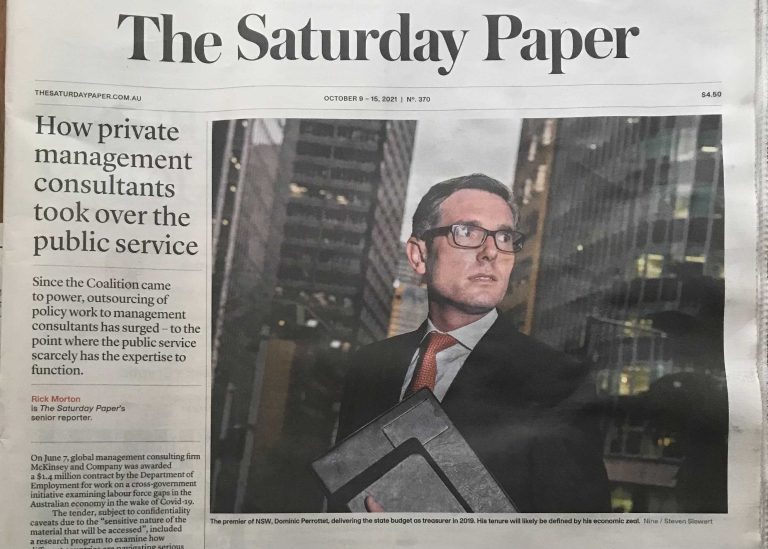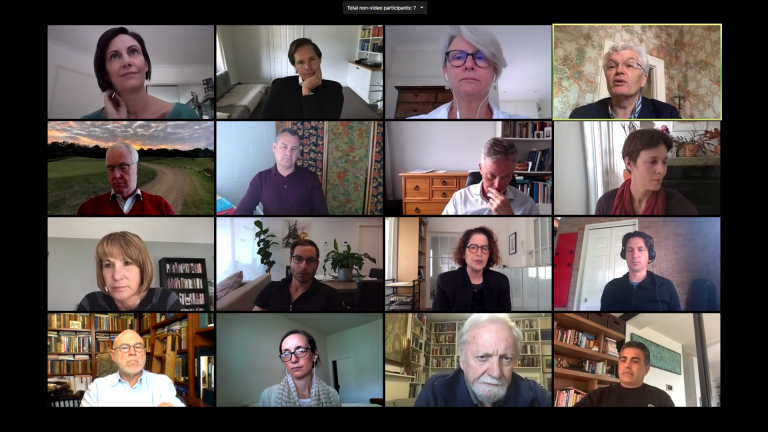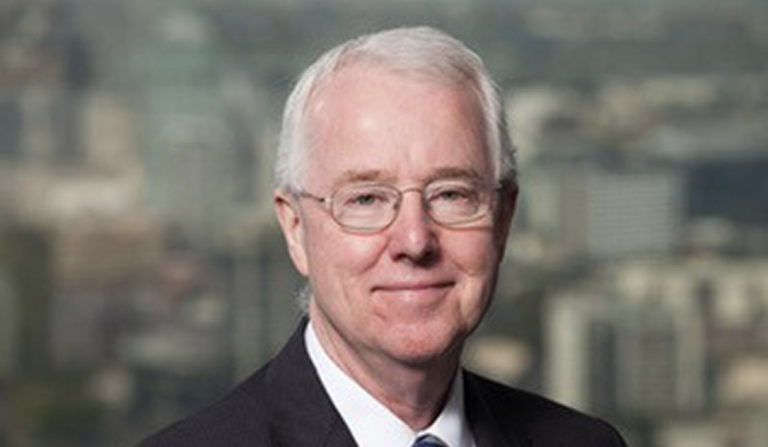This is an edited version of an address given at the Wattle Day forum on ‘Australian Values & Citizenship’ on 1 September 2006 at the National Museum of Australia.
Citizenship and Australian values
Around two years ago we started to hear talk about Australian values. Even Simpson and his donkey were invoked as a call to a values-based national moral rearmament. And for a long time we have heard about the virtue of family values, a term void of definition and resonant of Margaret Thatcher’s claim that there is no such thing as society, only individuals and families. Our affections need go no further than our suburban blocks, girt by white picket fences.
We hear untested assertions, such as criticism of schools for neglecting values. On the other side we hear cynics suggesting that any talk about values is necessarily vacuous waffle. Who could possibly disagree with values such as responsibility, freedom, or respect?
At The Centre for Policy Development we have joined the debate on values, taking a different approach. Our ideas centre on the word value as a verb. What are the things we value? What are the things the citizens of a decent society should value?
We came up with five things we value — freedom, citizenship, ethical responsibility in public office, fairness and stewardship.
At such a high level of generalization these might carry little practical meaning, but we put flesh on them by articulating principles to translate them into specific actions and public policies. Most importantly, to sharpen our thinking, we posited alternative principles which may be defensible by some criteria but which we were specifically rejecting.
At this Wattle Day forum our concern is with what we value in citizenship — what it means to us and, just as importantly, what it does not mean.
From British subject to citizen
Perhaps we should be thankful that our Constitution is silent on citizenship, for that silence has allowed our concept of citizenship to develop as our nation has developed. In 1901 we were British subjects. While there were other views at the time, any hint of citizenship was dismissed as seditious republicanism. In fact by 1901 our status as British subjects had been established for more than seventy years, for, as part of the colonial occupation, in 1829 everyone born in this land, including Aboriginal and Torres Strait Islanders, had become a British subject by birth.
It is not clear how this elevated status was transmitted to the Ngunnawal People (the traditional custodians of the land in the Canberra region), whose first European contact was around the same time, and it must have come as quite a surprise to the Aranda, Pitjandjara and others in more remote locations, whose first European contact was many years later, to learn that they had been British subjects for several generations.
To most Indigenous Australians the status was meaningless, as it was to other Australians with non-British ancestry, and to those of British background who sought to escape the confines of the Old World — who sought to be citizens rather than subjects. To some, such as those of Irish descent, it was downright offensive.
Only as Australia slowly grew in confidence and opened up to the world did the notion of Australian Citizenship come to be discussed. In 1948 the Commonwealth passed the Australian Citizenship Act:
 |
| Citizenship ceremony |
Australian citizenship represents formal membership of the community of the Commonwealth of Australia; and Australian citizenship is a common bond, involving reciprocal rights and obligations, uniting all Australians, while respecting their diversity; and persons granted Australian citizenship enjoy these rights and undertake to accept these obligations by pledging loyalty to Australia and its people, and by sharing their democratic beliefs, and by respecting their rights and liberties, and by upholding and obeying the laws of Australia.
The Act did not specify those rights, liberties and obligations, and had nothing to say about how being Australian was any different from being British, Chinese or Puerto Rican.
Over the following years that was to change. The odious policy known as White Australia was to pass away, and in 1973 the newly-elected Whitlam Government was to define more closely what it meant to be an Australian, in three key ways.
First, it adopted a UN and ILO based concept of political and anti-discrimination rights. Second, it asserted the notion of multiculturalism as a national identity. And third, it made symbolic and practical movements away from the concept of Australia as a society essentially British in culture and identity — for example by adopting a national anthem and by ending pro-British discrimination in immigration.
These developments did not occur in one sweep in 1973. As we say at The Centre for Policy Development, Australians are engaged in a work-in-progress. For example, there were strong moves to national redefinition by the Holt and Gorton Governments, and it was not until 1984 that formal reference to Australians being British subjects was finally rescinded. Official policy on the status of Indigenous Australians was glacial — their traditional social arrangements were badly damaged, but access to the formal benefits of Australian citizenship was slow to develop.
Citizenship and the common wealth
In our document Reclaiming our Common Wealth: policies for a fair and sustainable future, we are contributing to this work-in-progress. Indeed, the words Common Wealth imply a notion of citizenship as one of sharing certain public assets — not just hard assets such as our roads and warships, but also our inherited assets of environmental and social capital, and our implicit and explicit social contracts, such as our willingness to share with other Australians our costs of health care and education.
This is in contrast to a popular but more parsimonious view of the relation between citizens and their governments, which sees government as just another business corporation, providing or paying for a limited range of services where markets have failed and providing welfare services for the ‘indigent’. We specifically reject this view.
 |
| Citizenship Ceremony |
We note, federally, that the present government, with little fanfare, has engaged in corporate re-branding, replacing the term Commonwealth Government with the more mundane Australian Government. Politicians take pride in offering us tax cuts, in the same way as corporations announce increased cash dividends or capital returns, rather than offering us, as citizens, the choice of contributing, through our taxes, to the common wealth. And, in a process that dates back to the mid eighties, the notion of accountability (the limited relationship a firm has to its stockholders) has replaced the notion of responsibility (the broader relationship a government has to its citizens).
Lest one believe this is purely a federal development, it also occurs at a state and territory level. Here in the ACT, for example, the school closure debate has been held almost purely in terms of government finances, rather than in terms of those community costs and benefits which do not appear on the government’s corporate-style ledgers but which would be taken into consideration under a wider view of the relation between citizens and their government. And it does not adequately value the non-financial investments citizens have made to the common wealth of schools, through P&C and other activities.
Perhaps the notion of citizenship which is being most sorely tested is that of multiculturalism. As in many public policy debates, we are presented with a false dichotomy. On the one hand we can revert to an assimilationist policy; on the other we can have clearly defined and separate communities.
We reject both views, because there does not have to be such a stark choice.
It is alarming, for example, to hear politicians talking about the Muslim community. Until recently we believed we had grown past such classifications; it’s many years since we have heard about the Catholic community or the Jewish community, and even longer since we have heard of Catholic or Jewish conspiracies to take over our country.
Having grown out of sectarianism, we don’t welcome its re-emergence. The vision of Australia as a collection of separated communities or tribes in sullen co-existence is a ghastly one. Amartya Sen, the economist who earned his Nobel Prize for his work on inequality and exclusion, calls it plural monoculturalism — a system in which people are constantly herded into different identity pens.
But neither do we regard full assimilation as a desirable policy objective. Australians should be free to choose their identities; indeed we all have many and constantly-changing identities, and one identity need not diminish any other identity. Our rules of social conduct should be confined to those which are necessary to ensure social harmony without detracting from people’s opportunities to express their (multiple) identities. My identity as an Anglican or Hindu does not crowd out or conflict with my identity as an Australian citizen of Irish, Lebanese, Chinese, or, more likely, hybrid ancestry, which, in turn does not crowd out or conflict with my identity as a citizen of the world, concerned with the blights of distant wars and poverty.
Around the world we can see extreme examples of social fragmentation, and its tragic consequences. It would be foolishly smug not to recognize the early stages of fragmentation here in Australia. A society can splinter along many lines, not only those based on religion. Real-estate agents advertise gated communities to protect us from fearsome strangers wandering the streets, waiting to invade our houses. We are encouraged, through generous subsidies to private insurance, to opt out of sharing our health care costs and services, and to buy our way into our own club of health care. And our public schools suffer from a flight of the elites. Even here in Canberra, once noted for its social mixing, we are now developing clearly-defined prosperous and poor suburbs.
As the British politician and philosopher Ralph Dahrendorf warns, societies come under stress when there are groups who believe they have no stake in sustaining those societies. When the rich or well-connected opt out, in physically gated communities or their equivalent in health and education, they no longer have reason to contribute to the collective or common wealth.
At the other end of the economic spectrum are those who are precluded from opting in — shut out because of poverty or isolation, or who are disconnected because of unemployment or racial and ethnic discrimination. They, too, for different reasons, feel they have nothing to contribute to the collective or common wealth. Dahrendorf was particularly mindful of the Los Angeles riots in 1965; we should take heed from the recent riots in Redfern, Macquarie Fields and Cronulla.
That returns us to the question of identity. The notion that we must choose one identity is dangerous, for it leaves us with only the choice of being in or out, of being a true and loyal Australian or an alien with loyalties elsewhere.
That is why we also need to be vigilant lest celebrations of national sporting achievements, or commemoration of military engagements, degenerate into jingoism and exceptionalism. The novelist G K Chesterton warned, ‘My country, right or wrong is a thing that no patriot would think of saying except in a desperate case.’ We should not let national pride distort our judgement. Henry Lawson, perhaps the epitome of Australian patriotism, who established the wattle as a symbol of growth and renewal, was not afraid to expose some of the harsher realities of Australia in his prose and poetry. Celebrating achievement is one aspect of citizenship; the flip side is in recognizing our shortcomings and failures and doing something about them, through political and other collective activity. In this regard our low membership of political parties is a worrying development.
Above all, we reject the idea that we live not in a society but in a market. In 1944 the economic philosopher Karl Polanyi, a refugee from Nazi and Communist totalitarianism, warned about the emergence of a market society. The market, traditionally, had been subject to society’s rules and norms; it had been contained within society. Polanyi prophetically saw the market coming to dominate society. Even earlier Lawson had prayed to God to keep Australia free of callous commercialism.
Callous commercialism crowds out citizenship. It transforms us from citizens to consumers. Our public space becomes commercial space; billboards look down on our highways and subway platforms, our casual clothing carries brand-name advertising, sporting and artistic gatherings are brought to us by corporate sponsors, the shopping mall replaces the street. What David Marquand calls the public sphere — where we come together as citizens to share and to enjoy that sharing, enjoying the company of our fellow citizens — is being replaced by the corporate or market sphere.
Technologies are allowing entertainment to be shifted into the privacy of our houses, but are we not losing something that we once enjoyed in outings to the cinema? Absurdly elevated fear of terrorism, and the inconvenience of associated security measures, make us wary of public events, but is not allowing a few crazed extremists to diminish our enjoyment a surrender to terrorism? As if to help the terrorists raise our anxiety, lawyers and liability insurers are making many community sporting and recreational events unaffordable as they raise fear about injuries and deaths, but if we stay at home cocooned in front of our televisions or playstations, are we not putting our lives at greater long term risk?
Supporting this closure of public space is another false dichotomy. It’s the suggestion that social engagement — contributing to and drawing from our common wealth — is at the expense of individualism. But it is in the market sphere where we can be drawn into the conformity of manipulated fashion. A vigorous and healthy public sphere allows us to achieve personal fulfilment in ways never dreamed of by marketing executives.
To us, citizenship is not a hollow notion. There is such a thing as society, there is such a thing as our common wealth, and as citizens we have an obligation to sustain and nurture that wealth which has generously been passed to us by previous generations of Australians.



